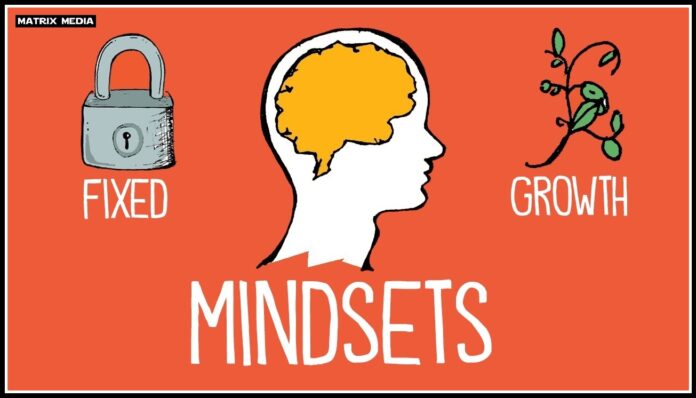Saad Gul

Following decades of research into how belief systems about ourselves and our abilities determine our behaviour and predict our success Carol Dweck, a Stanford Psychologist, discovered a simple yet groundbreaking idea: the power of mindset.

In her book Mindset, she shows that success in school, work, sports, relationships, career and almost every aspect of life can be dramatically influenced by how we think about our talents and abilities.
The book opens with a powerful question:
What are the consequences of thinking that your intelligence or personality is something you can develop as opposed to something that is a fixed, deep-seated trait?
So what exactly are these fluid and static states that most of us find ourselves in?
A “fixed mindset” assumes that our temperament, intellect, and creativity are invariables which we can’t influence in any purposeful way. Resultantly, our sense of self comes from striving for success and our ‘identity’ protects us from taking risks. Trying to perpetually avoid failure, we never challenge ourselves.

A “growth mindset,” contrarily, loves challenges and sees failure not as a sign of stupidity but as an opportunity for a new challenge, growth and for stretching our existing mental, emotional, physical and psychological abilities.
We are always trying to construct meaning from experience. As adolescents we identify with and develop either of these mindsets which determine our relationship with success and failure as adults. This also determines how happy or sad we will be.
On the importance of choosing to believe that intelligence and personality traits are malleable, Dweck observes:
For twenty years, my research has shown that the view you adopt for yourself profoundly affects the way you lead your life. It can determine whether you become the person you want to be and whether you accomplish the things you value. How does this happen? How can a simple belief have the power to transform your psychology and, as a result, your life?
Believing that your qualities are carved in stone — the fixed mindset — creates an urgency to prove yourself over and over. If you have only a certain amount of intelligence, a certain personality, and a certain moral character — well, then you’d better prove that you have a healthy dose of them. It simply wouldn’t do to look or feel deficient in these most basic characteristics.
Dweck says she has seen so many people with this one consuming goal of proving themselves — in the classroom, in their careers, and in their relationships. Every situation, she observes, calls for a confirmation of their intelligence, personality, or character. Every situation is evaluated: “Will I succeed or fail? Will I look smart or dumb? Will I be accepted or rejected? Will I feel like a winner or a loser? . . .”

Alternatively, Dweck suggests, a growth mindset should be adopted by people who are too critical and ‘fixed’ in their beliefs. “There’s another mindset in which these traits are not simply a hand you’re dealt and have to live with, always trying to convince yourself and others that you have a royal flush when you’re secretly worried it’s a pair of tens. In this mindset, the hand you’re dealt is just the starting point for development.”
She explains that a growth mindset is based on the belief that your basic qualities are things you can cultivate through your efforts. Although people may differ in their initial talents and aptitudes, interests, or temperaments — everyone can change and grow through application and experience.
Although people with this mindset do not believe that anyone can be anything, that anyone with proper motivation or education can become Einstein or Beethoven. However, ‘they believe that a person’s true potential is unknown (and unknowable); that it’s impossible to foresee what can be accomplished with years of passion, toil, and training’.
When we experience a setback, business failure, rejection, financial loss or damaged relationship in a fixed mindset, we tend to think we’re not talented or smart. However, in a growth mindset, the same trials, challenges and adversity appear as opportunities to learn, grow and continue improving.

Mindset is an illuminative process that guides us about how we’ve been in the past and where we’re headed in the future. In the fixed mindset, that process is driven by an internal critic that judges and evaluates – always trying to collect evidence to determine whether or not you’re a good person, whether your partner is self-absorbed, or whether you are superior, in some sense, than the person next to you.
However, in a growth mindset, the internal monologue is self-compassionate. Appetite for curiosity and learning drives thoughts, behaviours, choices and actions. The brain looks for data and information that can be channeled into learning and constructive action. This is something that open minds certainly can process significantly better than the fixed mindset.
So let us try training our brains to be open to ideas for growth and achievement.




